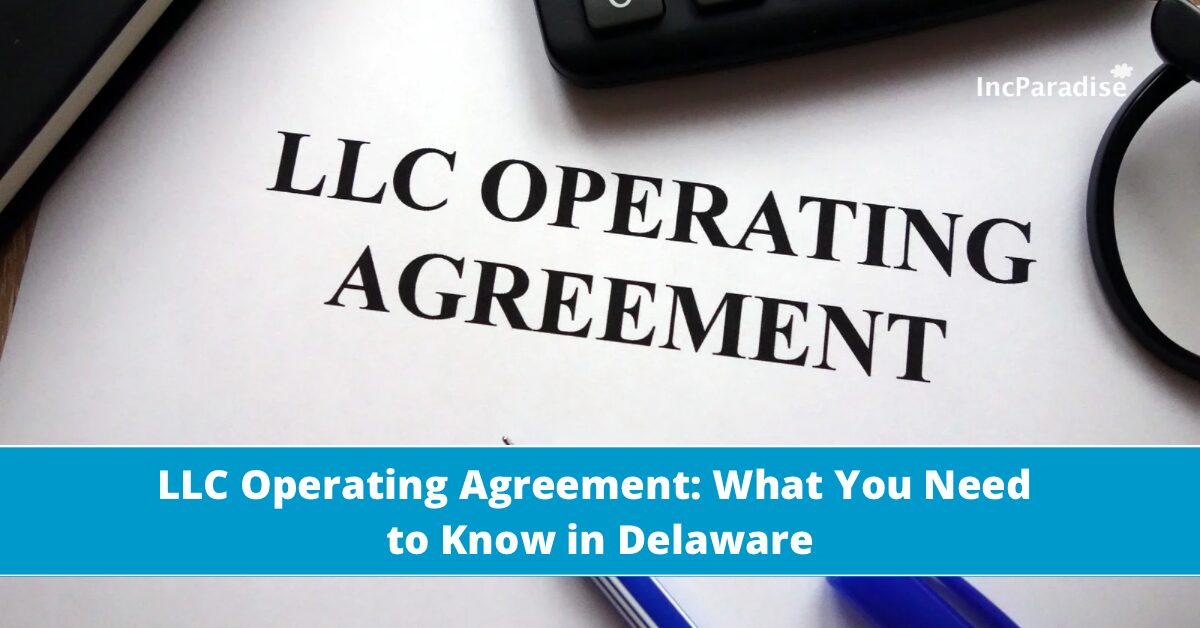If you’re starting a business, you’ve probably come across the terms LLC and DBA. At first look, they can sound similar, but it’s actually NOT. “An LLC, or Limited Liability Company, is a legal business structure that separates your personal assets from your business liabilities. In contrast, a DBA, short for “Doing Business As,” is simply a registered name you can use to operate your business. It does not create a distinct legal entity and does not offer liability protection.”
Understanding this distinction is important when deciding how to structure your business. The choice affects everything from legal protection to taxes and even how customers perceive your brand. So, here’s what this blog aims to do:
- Define what an LLC is and what a DBA really is
- Break down the legal and tax implications of each
- Clarify how much protection (if any) each option offers
- Walk through practical scenarios on when an LLC might use a DBA.
By the end, you’ll know which route fits your business best and why.

What is an LLC?
An LLC, or Limited Liability Company, combines features of corporations, partnerships, and sole proprietorships. Its main benefit is in the name: limited liability. If your business faces debts or lawsuits, your personal assets, like your home, car, and savings, stay protected.
Forming an LLC means creating a separate legal entity. This separation shields your personal finances and adds credibility to your brand. Many lenders and customers view an LLC as more professional, which can help you secure funding and grow.
Your LLC will operate under its registered legal name. Before choosing one, check that no other business has the same or a too similar name, as the state will reject your application if it does..Your LLC will operate under its registered legal name. Before selecting a name, ensure it is not already in use or too similar to an existing business name, as the state will reject your application if it is
Once registered, you’ll need a separate LLC bank account and must handle all transactions under your LLC’s name. While starting an LLC costs more than a sole proprietorship, the liability protection and exclusive rights to your business name make it worth it for many small business owners.
What is DBA?
A DBA, short for “Doing Business As,” lets you operate under a name that’s different from your legal name. It’s often called a fictitious business name or assumed name.
If you’re a sole proprietor and you want to use anything other than your legal name for your business, most states require you to register a DBA with your local licensing office. For example, if your name is John Kenny, you can trade as “John Kenny” without registering. But if you want to use “John’s Professional Services,” you’ll need to file a DBA.
Small business owners often choose a DBA for privacy, brand appeal, or flexibility. The process is simple and cheaper than forming an LLC. However, a DBA does not create a separate legal entity or offer liability protection; it’s simply permission to use another name for your business.
DBAs aren’t just for sole proprietors. Partnerships, corporations, and even LLCs use them when they want to trade under a different name than their registered one. For example, if your legal entity is “ABC LLC” but you want to operate under the name “Sunrise Marketing,” you must register “Sunrise Marketing” as a DBA.
Difference between DBA & LLC
LLCs and DBAs have very different purposes, but they are often confused. One decides your business structure and legal standing, while the other is simply a name you operate under. Here’s a quick comparison to help you see the differences clearly.
When and Why You Might Register a DBA for an LLC
If you’re already running your business as an LLC but want to introduce a new brand, product line, or storefront name without forming another LLC, you can register a DBA. It lets your existing LLC operate under multiple names without the hassle or extra cost of creating separate entities. Think of a DBA like a trade alias for your LLC. You use it when your LLC wants to market different services or expand into new markets under a distinct name, like launching “First-Class Catering” under your original “Diane’s Hometown Diner, LLC”.
By registering a DBA, your LLC can:
- Branch into new ventures with unique names,
- Simplify branding and customer recognition,
- Avoid the administrative and legal burden of forming separate LLCs for each new line of business.
A DBA is an extension, not a substitute.
It’s important to set this straight: you must form the LLC first before registering a DBA. The DBA can’t stand alone; it’s not a separate legal entity. Instead, it acts as a “nickname” or operating name for the existing LLC. That means all the legal protections and liabilities still tie back to the LLC. The DBA simply helps customers identify your brand under a different, perhaps more marketable name, without altering the LLC’s structure.
Sole Proprietorship and DBA: The Basics
Now that we’ve covered what LLCs and DBAs are, let’s zoom in on how a DBA works when you’re running a sole proprietorship.
What is a sole proprietorship?
A sole proprietorship happens when you run a business all on your own. It’s the simplest structure and sets up effortlessly. But it doesn’t create any legal separation between you and your business. That means if your business runs into trouble, your personal assets, like your house or savings, are fair game to cover debts or legal claims.
Will a DBA give you protection as a sole proprietor?
You might wonder if registering a DBA gives you legal protection. It doesn’t. A DBA is just a name you operate under, not a legal shield. If someone sues your business or you owe money, your personal belongings remain at risk, even if you have a DBA.
What does a DBA actually do?
A DBA (Doing Business As) gives you the flexibility to use a business name that’s not your personal name, like turning “John Black” into “John’s Art Workshops.” It helps with branding, privacy, and looks more professional on signage, contracts, or banking documents.
Legal and liability implications
Registering a DBA doesn’t create a new legal business entity; it simply allows you to use an alias. You remain personally responsible for everything your business does.
For example, consider Mark Johnson, who runs a freelance graphic design business under his own name. He registers a DBA as “Johnson Studio” to sound more professional. Even with the DBA in place, if someone sues the business or it racks up debt, Mark remains personally on the hook, as that’s how sole proprietorships work.
Registration & compliance
- Fees vary by location. Many counties charge $25–$35, and some states or counties require you to publish your DBA in a local paper.
- Renewal is required, and the timeline varies by your state of incorporation.
Sole Proprietorship with DBA vs. LLC (with or without DBA): Which Is Better?
A sole proprietorship with a DBA lets you operate under a business name without creating a separate legal entity. An LLC, whether you add a DBA or not, creates a separate legal structure that changes how your business is recognized, taxed, and protected.
Liability protection
- Sole proprietorship + DBA: A DBA doesn’t give you liability protection. If your business faces debts or lawsuits, your personal assets, like your home or savings, are still liable.
- LLC (with or without DBA): An LLC separates your personal and business liabilities. Generally, creditors can’t touch your personal assets for business obligations.
Taxes
- Sole Proprietorship + DBA: All profits pass through to your personal tax return. You’ll pay self-employment tax on the income.
- LLC (with or without DBA): By default, single-member LLCs are taxable in the same way as sole proprietorships. For multi-member LLCs, the IRS treats them as partnerships.
That means the LLC itself doesn’t pay income tax. Instead, gains and losses pass through to the LLC’s members, who report them on their personal tax returns. However, you can elect your LLC to be taxed as a C corporation or an S corporation to gain tax benefits.
Set up and costs
- Sole Proprietorship + DBA: Simple, fast, and low-cost to set up. Just file for a DBA with your state or county.
- LLC (with or without DBA): Requires filing formation documents, paying state fees, and meeting ongoing compliance rules. Costs are generally higher.
Best fit scenarios
- Sole Proprietorship + DBA: Great for freelancers, small local businesses, and side hustles with low risk.
- LLC (with or without DBA): Better for businesses that take on higher risk, want credibility with clients, or plan to grow significantly.
Decision factors
Think about:
- Your risk level and need for personal asset protection
- Willingness to handle formalities and costs
- Long-term growth plans
- Tax flexibility needs
Bottom line
If you’re running a small, low-risk business and want to keep things simple, a sole proprietorship with a DBA can work well. But if you want stronger legal protection and growth potential, an LLC, even if you add a DBA later, is usually the safer bet.
How can IncParadise help you?
At IncParadise, we help you turn your business idea into a legal reality, guiding you through each step with clarity and confidence. We assist you in forming your LLC, registering a DBA, or even figuring out which business structure makes the most sense for your goals. Our team prepares your Articles of Incorporation, helps you obtain your EIN, handles all the necessary filings, and ensures you meet every compliance requirement.
Whether you’re starting fresh, rebranding with a DBA, or upgrading to an LLC, we give you the tools, guidance, and support to make the process smooth and stress-free. Think of us as your behind-the-scenes business partner; always ready to answer questions and help you avoid costly mistakes. Ready to take the next step? Reach out to IncParadise today or visit our website to get started. Your business journey is exciting; let’s make sure it starts the right way.
Last updated: August 2025








